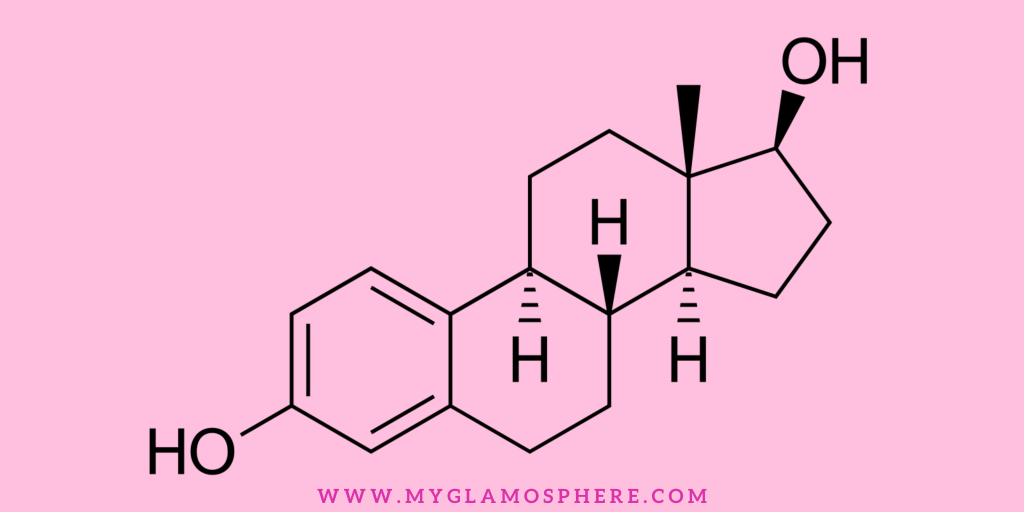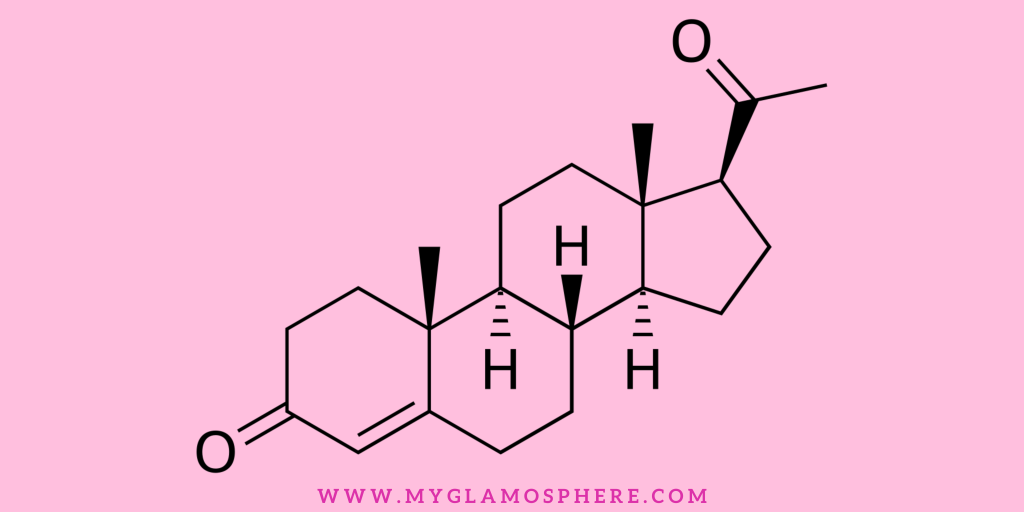The connection between hormones and skin health in women is like an intricate collaboration, influencing the complexion, texture, and overall well-being of the skin. Hormones, the chemical messengers in our bodies, play a pivotal role in orchestrating various functions, and their impact on the skin is significant.
One of the key players in this hormonal synergy is estrogen. Often referred to as the “female hormone”, estrogen contributes to maintaining the thickness, hydration, and elasticity of the skin. It acts as a guardian, keeping the skin plump and radiant. However, estrogen levels fluctuate throughout the menstrual cycle, and during certain phases, such as menstruation, a temporary drop in estrogen can lead to increased oil production and, consequently, breakouts.
In Summary:
Estrogen – The Leading Lady:
- Hydration and Elasticity.
- Radiance.

Progesterone, another important hormone, complements estrogen’s role in the hormonal dynamics. It is known as the “calming hormone”, maintaining balance and preventing estrogen-driven skin havoc. Yet, when hormonal imbalances occur—due to stress, lifestyle changes, or other factors—progesterone may not be as effective, potentially resulting in skin issues.
In Summary:
Progesterone – The Supportive Sidekick:
- Maintains Balance.
- Potential Imbalances.

The impact of hormones on the skin becomes even more pronounced in the context of the environment. Living under the Nigerian sun adds a unique dimension to this connection. While the sun provides warmth, it can also pose challenges to the skin, requiring an understanding of how hormonal fluctuations interact with environmental factors. Understanding this interplay is crucial for tailoring skincare routines to the unique challenges posed by the environment.
In Summary:
The Nigerian Sun – A Unique Challenge:
-
Warmth and Intensity.
Beyond the hormonal shifts, lifestyle factors also come into play. Stress, lack of sleep, and dietary choices can further influence hormonal balance and subsequently affect the skin. In our Nigerian culture, where vibrant spices and natural skincare remedies are integral, dietary choices may even contribute to alleviating the impact of hormonal fluctuations on the skin.
Spices like turmeric which have anti-inflammatory properties can offer a natural remedy for hormonal skin flare-ups, showcasing the direct link between diet and skin health.

Local practices and traditional skincare routines, often passed down through generations, play a significant role in navigating the connection between hormones and skin health. Natural ingredients like shea butter and coconut oil, commonly found in our Nigerian markets, become not just cultural staples but essential components of skincare. They hydrate, protect, and contribute to the resilience of the skin, especially important in this climate.
In essence, the connection between hormones and skin health in women is multifaceted. It involves understanding hormonal fluctuations, recognizing the influence of environmental factors, and embracing the cultural and traditional elements that contribute to holistic skincare practices. By acknowledging this connection, women can tailor their skincare routines to embrace and celebrate the dynamic nature of their skin, navigating the challenges with knowledge and self-care.
Hugs and Kisses,
Msglam.






Leave a Comment